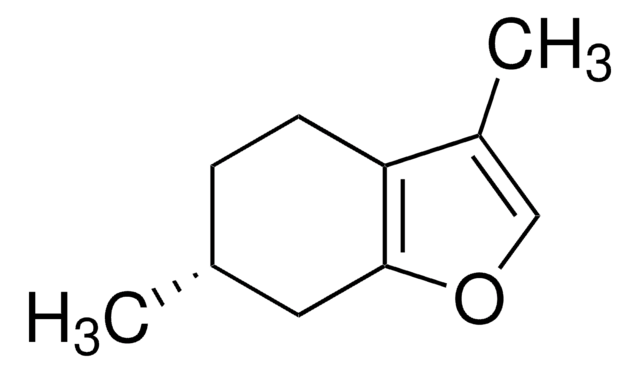74158
Nonadecane
analytical standard
About This Item
Productos recomendados
grado
analytical standard
Nivel de calidad
densidad de vapor
9.27 (vs air)
presión de vapor
1 mmHg ( 133.2 °C)
Análisis
≥99.5% (GC)
temp. de autoignición
446 °F
caducidad
limited shelf life, expiry date on the label
técnicas
HPLC: suitable
gas chromatography (GC): suitable
bp
330 °C (lit.)
mp
30-34 °C (lit.)
32-34 °C
densidad
0.786 g/mL at 25 °C (lit.)
aplicaciones
cleaning products
cosmetics
flavors and fragrances
food and beverages
personal care
formato
neat
cadena SMILES
CCCCCCCCCCCCCCCCCCC
InChI
1S/C19H40/c1-3-5-7-9-11-13-15-17-19-18-16-14-12-10-8-6-4-2/h3-19H2,1-2H3
Clave InChI
LQERIDTXQFOHKA-UHFFFAOYSA-N
¿Está buscando productos similares? Visita Guía de comparación de productos
Categorías relacionadas
Aplicación
Productos recomendados
Código de clase de almacenamiento
11 - Combustible Solids
Clase de riesgo para el agua (WGK)
WGK 3
Punto de inflamabilidad (°F)
212.0 °F - closed cup
Punto de inflamabilidad (°C)
100 °C - closed cup
Equipo de protección personal
Eyeshields, Gloves, type N95 (US)
Elija entre una de las versiones más recientes:
¿Ya tiene este producto?
Encuentre la documentación para los productos que ha comprado recientemente en la Biblioteca de documentos.
Los clientes también vieron
Nuestro equipo de científicos tiene experiencia en todas las áreas de investigación: Ciencias de la vida, Ciencia de los materiales, Síntesis química, Cromatografía, Analítica y muchas otras.
Póngase en contacto con el Servicio técnico











